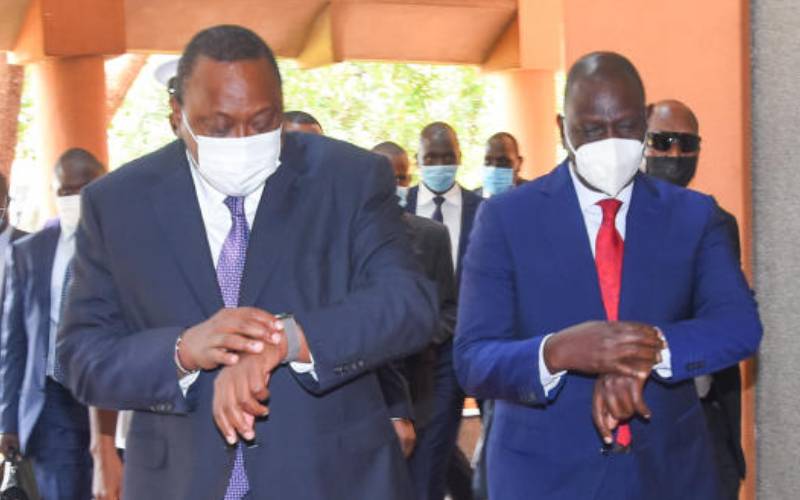×
The Standard e-Paper
Home To Bold Columnists

President Uhuru Kenyatta with DP William Ruto at Parliament Buildings, Nairobi. [DPPS]
That President Uhuru Kenyatta’s Cabinet is divided is not in doubt. President Kenyatta has openly differed with his deputy William Ruto over the latter’s early campaigns. Uhuru recently challenged his deputy to resign during an interview with media editors at State House.